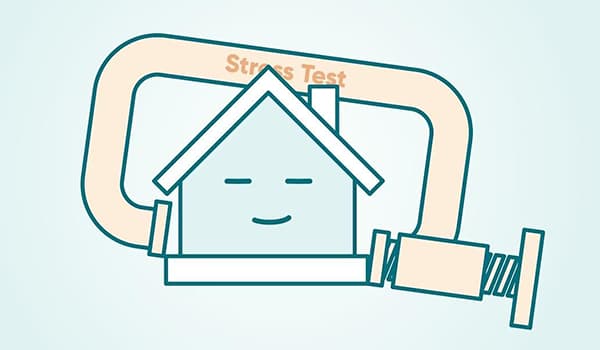Mortgage Broker Compensation: How Brokers Get Paid

Going for a mortgage broker or finding a home loan on your own is a choice, one that is heavily influenced by mortgage broker compensation. So, want to know how mortgage brokers get paid? That’s the question we will be answering here.
How Do Mortgage Brokers Get Paid?
A mortgage broker is someone with a professional license who acts as a middleman between the money lender and the money borrower in the case of buying a house. They look at your finances, analyze them, and they will try to find a house loan that best suits your specific financial situation. They typically work in your best interest since they mostly rely on referrals from satisfied customers.
Mortgage brokers typically make money through lender-paid commissions or borrower-paid commissions. This means that they will ask for a particular percentage of the entire loan amount either from the loan giver or the loan receiver. Note that they can not ask both parties to pay, as the law does not allow that. There is a catch though; what sometimes happens is that when the lender pays the mortgage advisor commission, they increase the loan amount that the borrower has to pay, therefore, the payment of the home loan broker commission will once again fall on the buyer’s shoulders, and they will have to take care of the commission either way, only this time over a long period of time, instead of paying upfront when closing the deal.
You should know that mortgage brokers either work independently or are employees of a brokerage. If they are an employee, they might have a fixed salary and split the mortgage specialist commission with the firm they work for.
Types of Mortgage Broker Compensation

So far, regarding the question of how do mortgage agents get paid, we have only talked about their main source of income, but there are other ways brokers are compensated for their services:
- Lender-Paid Compensation
The broker is paid by the lender and usually receives a percentage of the loan amount as payment.
- Borrower-Paid Compensation
The broker receives a percentage of the loan amount as payment, but this time from the borrower.
- Flat Fees
A broker might charge you a specific amount of money and not receive any commission on the mortgage.
- Upfront Fees
Most brokers only ask for a commission when successfully finding you a good loan and when closing the deal; however, some will ask you for upfront cash before even starting the process.
- Trailer Fees
Some brokers might charge you an annual commission instead of asking for a commission at the beginning of the deal.
- Renewal Fees
In case you decide to switch to a different agent at the end of the mortgage term, there are agents out there who will ask for some money before letting you change your broker.
- Mortgage Cancellation Fees
After getting approval for your mortgage, if you decide against closing the deal, you might be required to pay a certain amount or a commission because the cancellation could hurt the broker’s efficiency rate and reputation.
- Additional Services
Your broker might offer you related services, such as home insurance or financial consulting, and earn extra fees for them.
Pros and Cons of Commission-Based Compensation
We discussed all about how does a mortgage broker get paid, now it’s time to talk about the benefits and some downsides you should be aware of.
The benefits include:
- Acting in your best interests: Commissions usually encourage higher efficiency, work ethics, productivity, and ultimately customer satisfaction, so that you finalize the deal.
- No need for an upfront payment: Usually, when a broker is paid through commissions, they do not ask for cash at the start of the process.
- Better chances to find a good lender: Brokers are in contact with several lenders, and that means that there’s a better chance of finding a house loan best suited to your needs and your financial limits.
- Cheaper when the loan is not huge: A commission is a better option compared to a flat fee if the size of the loan is not considerable.
Possible downsides are as follows:
- Acting in their own best interest: The bigger the loan, the bigger the broker’s cut. So they might not always find the mortgage best for you, but best for them. Also, they might choose a lender that pays them the most instead of choosing one that has the lowest interest rates for the borrower.
- Ambiguous details: There are no strict rules when it comes to mortgage brokering, so it is difficult for the borrower to know all the details of financial matters and how much an agent is really making or the things they are charging you for.
- In a hurry to close the deal: Many brokers are only paid when a borrower closes the deal and takes the loan; therefore, the agents might feel pressured and, as a result, pressure you to close the deal as soon as possible.
- More costly when the loan is huge: Of course, the opposite can also be true: the bigger the loan, the bigger the amount of the commission. So maybe in such circumstances, a flat fee would be a better alternative.
How Much Commission Does a Mortgage Broker Make?

Well, the exact percentage of the finance broker commission varies based on several factors, including the reputation of the broker, their level of experience, the area or neighborhood they are stationed in, and the local market of that area. All that said, the mortgage agent commission rate is usually somewhere between 0.5% to 2.75% of the total amount of the loan.
As an example, if the amount of the mortgage is $500,000 and the mortgage broker compensation is 2%, the broker will receive $10,000. That is, if the broker is self-employed. If they are working at a brokerage alongside other agents, they might receive a monthly income plus a portion of the commission for the mortgage they successfully land.
Regarding how much exactly they make a year, that depends on several things we mentioned before. Based on information provided by Glassdoor, the average salary of a mortgage broker in Canada is anywhere between $45k and $96k a year.
Frequently Asked Questions
1. What is lender-paid broker compensation?
Lender-paid broker compensation is when the broker is paid by the lender for bringing in the customer or the borrower.
2. Do RBC mortgage specialists make commissions?
Yes, they do, the same as most big banks in Canada. Their rates are usually smaller than other mortgage brokers, but they also receive a fixed annual salary.
3. What is a broker compensation agreement?
The broker compensation agreement is a legal document that specifies how much a broker is going to get paid for the services they provide. You can see the payment terms, commission structures, the parties involved in the process, etc., in this agreement.
4. How much do mortgage advisors make at CIBC?
Mortgage advisors working for the Canadian Imperial Bank of Commerce earn through commissions and a fixed annual salary of around $30k to $60k.
Conclusion
Different mortgage brokers are compensated in a variety of ways, but mostly by receiving a commission on the home loan they find for the buyer, either on the lender’s side or on the borrower’s side. It is your choice whether to go to a broker or go directly to the lenders yourself, but keep in mind all the points we mentioned, all the merits and the disadvantages, and then decide what is the best option for you.
- In this post:
- How Do Mortgage Brokers Get Paid?
- Types of Mortgage Broker Compensation
- Pros and Cons of Commission-Based Compensation
- How Much Commission Does a Mortgage Broker Make?
- Frequently Asked Questions
- Conclusion



